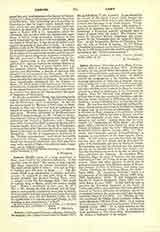

Lamy, BERNARD, Oratorian, b. at Le Mans, France, in June, 1640; d. at Rouen, January 29, 1715. At the age of twelve he was placed under the tuition of the Oratorians of his native town, and soon evinced more than ordinary talent and versatility of mind. In 1658 he entered the congregation of the Oratory, and, after studying philosophy at Paris and at Saumur, was appointed professor in the college of Vendome and later at Juilly. He was ordained to the priesthood in 1667, and after teaching a few years at Le Mans he was appointed to a chair of philosophy in the University of Angers. Here his teaching was attacked on the ground that it was too exclusively Cartesian, and Rebous the rector obtained in 1675 from the state authorities a decree forbidding him to continue his lectures. He was then sent by his superiors to Grenoble, where, thanks to the protection of Cardinal Le Camus, he again took up his courses of philosophy. In 1686 he returned to Paris, stopping at the seminary of Saint Magloire, and in 1689 he was sent to Rouen, where he spent the remainder of his days. His writings are numerous and varied. Among them may be mentioned: (I) “Apparatus ad Biblia Sacra”, etc. (Grenoble, 1687), translated into French by order of the Bishop of Chalons under the title “Introduction a, la lecture de l’Ecriture Sainte” (Lyons, 1689). (2) “Harmonia, sive Concordia quatuor Evangelistarum”, a harmony or concordance of the Four Gospels (Paris, 1689). In this work he contends that John the Baptist was twice cast into prison, first in Jerusalem by order of the Sanhedrin, and later by Herod in Galilee. He maintains also that the Savior and His Apostles did not eat the paschal lamb at the Last Supper, and that the Crucifixion occurred on the day on which the Jews celebrated the Passover. He considers Mary Magdalen, Mary the sister of Lazarus and the sinner mentioned in Luke, vii, 37 sqq. to be one and the same person. These and other opinions involved him in animated controversy with Bulteau, pastor of Rouen, Jean Pienud, Le Nain de Tillemont, and others (see “Traits historique de l’ancienne Paque des Juifs”, Paris, 1693). (3) “Apparatus Biblicus”, which is a development of his introduction (Lyons, 1696; Jena, 1709; Amsterdam, 1710). It was translated into French by Abbe de Bellegarde (Paris, 1697) and by Abbe Boyer (Lyons, 1709). In this work he calls in question the historical character of the books of Tobias and Judith, and maintains that even after the Council of Trent a difference of authority should be recognized between the proto-canonical and deuterocanonical books of the Bible. (4) “Defense de l’ancien sentiment de l’Eglise latine touchant l’office de Sainte Madeleine” (Rouen, Paris, 1697). (5) A volume of commentaries on his previous harmony of the Four Gospels (Paris, 1699). (6) A Latin treatise on the Ark of the Covenant (Paris, 1720), a posthumous work published by Pere Desmollets, who prefixed to the volume a biography of the author.
JAMES F. DRISCOLL

